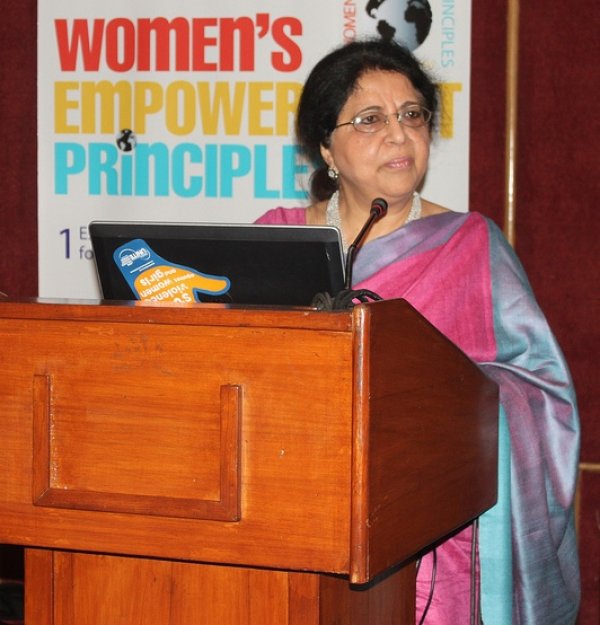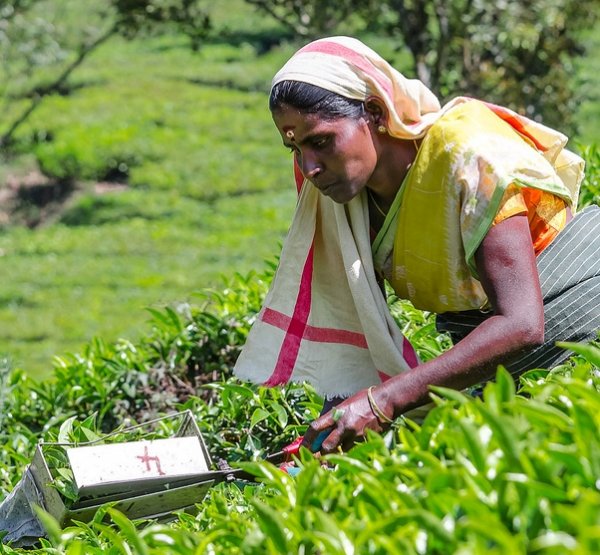Culture and Society: Women in Business
General View
An increasing number of women are making their presence felt in India’s vibrant economy as entrepreneurs and professionals. Most of these women, however, hail from India’s urban and semi-urban areas. Rural women have to be content with tending the fields and contributing to the family’s income by running micro or small-sized businesses. Studies indicate that many women make significant contributions to their family’s businesses in the form of unpaid labor, but their efforts are rarely recognized.
Traditionally, Indian women were expected to stay at home and take care of the family, thereby severely limiting their participation in the economic and business sectors. Since independence, government initiatives and programs, along with strident activism by innumerable women’s non-governmental organization (NGOs), have been trying to break down the male-centric barriers to Indian women’s empowerment, with considerable success. The economic liberalization in the late 20th century, along with the profound changes in society due to globalization, has unleashed the creativity and potential of Indian women. A large and increasing number of middle- and upper-class women with higher education and English language skills have blazed a shining trail through the Indian economy. The innumerable IT firms, BPOs (business process outsourcing companies), and call centers (staffed and even run by educated English-speaking women) dotting the Indian landscape are resounding testimony to Indian women’s social and economic empowerment.
Legal Rights
Indian women enjoy equal legal rights as the men in all spheres: social, political, and economic. They were granted the right to vote in 1950 and can own and inherit businesses as well as property. Inheritance matters, however, are governed by the civil law as well as various religious laws pertaining to religious communities: Hindu Joint Family laws, Sharia laws, and Christian marriage and inheritance laws. The Indian constitution accepts only the Sharia laws on marriage and inheritance for Muslims. Certain provisions of the Christian inheritance laws discriminatory to women have been successfully challenged in the Supreme Court of India.
Women are assured equal pay as men for equal work, according to laws guaranteeing gender equality; however, pay discrepancies do exist in India, mostly in the unorganized sector and in small-sized enterprises. Almost all large private and public sector companies and the civil service provide equal pay for both sexes. Indian women, faced with patriarchal prejudices, male chauvinism, and religious orthodoxy, have a powerful and reliable ally to safeguard their interests: the highly progressive Indian Judiciary.
Women in Professions
In terms of sheer numbers, most Indian women participate in the agricultural and industrial sectors. The enormous size of the Indian economy, however, offers many opportunities in a wide variety of careers, and women are participating in almost all of these in greater and greater numbers.
Women occupy a substantial portion of the teaching and nursing workforce. Indian women are also doctors, accountants, lawyers, and judges (in the lower as well as the higher judiciary). Many women also hold administrative positions in various public and private sector companies. Women are even making their presence felt in the Army and the Air Force as officers and pilots. A large number of women work in the Indian film industry (the largest in the world) and in television as actors, directors, writers, singers, dancers, composers, musicians, editors, and costume designers. Last and far from least, Indian women form a large and increasing part of the vibrant and growing software development and information technology (IT) industry.
Increasing economic liberalization and industrialization has seen a rise in the participation of women in the business sector. The outlook for Indian women in business is bright, and the trend is set to continue with the government as well as private financial institutions paying special attention to the needs of female businesswomen. Indian women are not barred from any profession, although certain sectors like mining are heavily male-dominated. Women still cannot work in combat roles in the armed forces, but this is set to change.
No dress code restrictions prevent women from taking certain jobs, though most Indian women dress conservatively. Urban women, however, follow the latest Western fashion or go for a fusion of Indian and Western in their dressing.
If a mother works, the extended family such as grandparents, relatives, and older siblings assume childcare. State-sponsored childcare is available in India, though the facilities are by and large inadequate and poorly maintained.
Women as Business Owners
According to early 21st century estimates, about 10 percent of all entrepreneurs in India were women. The number is set to grow and possibly double in the next few years, as an increasing number of women start their own businesses. Indian businesswomen usually focus on the clothing, food products, healthcare, gifts, household goods, beauty care, cosmetics, publishing, film and television production (including animation), tailoring, baby products, fashion designing, and, most importantly, the IT sector.
Mention should be made here of the women belonging to the Indian Diaspora, also known as NRIs (Non-Resident Indians), in many regions of the world like North America, Europe, Middle East, Africa, and Asia-Pacific, whose contributions toward the Indian economy in terms of foreign currency remittances and investments are huge and growing.
Copyright © 1993—2025 World Trade Press. All rights reserved.

 India
India 

